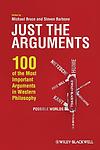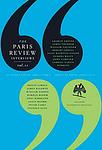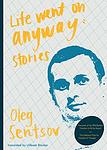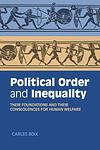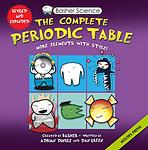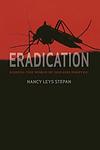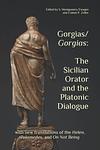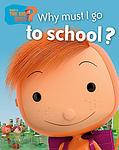The Greatest Multiple, Unknown "Nonfiction" Books Since 2000
Click to learn how this list is calculated.
This list represents a comprehensive and trusted collection of the greatest books. Developed through a specialized algorithm, it brings together 300 'best of' book lists to form a definitive guide to the world's most acclaimed books. For those interested in how these books are chosen, additional details can be found on the rankings page.
Genres
Countries
Date Range
Reading Statistics
Click the button below to see how many of these books you've read!
Download
If you're interested in downloading this list as a CSV file for use in a spreadsheet application, you can easily do so by clicking the button below. Please note that to ensure a manageable file size and faster download, the CSV will include details for only the first 500 books.
Download-
1. E=Mc2 by David Bodanis
The book provides a layperson-friendly explanation of the world's most famous equation, delving into the history, science, and people behind its development. It explores the biographies of the scientists who contributed to our understanding of energy and mass, including the equation's originator, and the practical and philosophical implications of the equation's assertion that energy and mass are interchangeable. The narrative also discusses the equation's role in the development of atomic energy and its impact on modern physics, offering an accessible journey through the annals of scientific thought and the revolutionizing discoveries that shape our understanding of the universe.
-
2. La Charte Du Mandé Et Autres Traditions Du Mali by Aboubakar Fofana, Jean-Louis Sagot
"La Charte Du Mandé Et Autres Traditions Du Mali" is a comprehensive exploration of the rich historical and cultural heritage of Mali, focusing on the ancient Mandé Charter, also known as the Manden Charter. This seminal text delves into the origins and implications of this 13th-century document, which is one of the earliest forms of human rights charters. The book not only examines the charter's principles of social justice, equality, and political ethics but also contextualizes it within a broader spectrum of Malian traditions, shedding light on the country's profound historical narratives and the enduring cultural practices that continue to shape its identity.
-
3. America Right Or Wrong by Anatol Lieven
"America Right or Wrong" offers a critical examination of American nationalism and its impact on both domestic and foreign policy. The book delves into the historical roots of American national identity, exploring how deeply ingrained beliefs and myths have shaped the nation's political landscape. The author argues that these nationalistic sentiments have led to a polarized society and have influenced the United States' approach to international relations, often resulting in unilateral and militaristic actions. The book provides a nuanced analysis of the tensions between America's self-perception as a global force for good and the often contradictory realities of its actions on the world stage.
-
4. Just The Arguments by Michael Bruce, Steven Barbone
"Just The Arguments" provides a concise exploration of 100 of the most significant and influential philosophical arguments throughout history. Each argument is distilled into a brief and accessible summary, offering readers insights into complex philosophical ideas ranging from ancient to contemporary thought. The book is designed to serve as an introductory guide for students and enthusiasts of philosophy, presenting clear and straightforward explanations and analyses of key philosophical debates, making it an essential resource for anyone looking to understand the foundational arguments that have shaped philosophical discourse.
-
5. Japanese Philosophy by John C. Maraldo, Thomas P. Kasulis, James W. Heisig
This book provides a comprehensive overview of Japanese philosophy, exploring its unique characteristics and its evolution through history. It delves into the diverse intellectual traditions of Japan, including both well-known philosophical schools and lesser-known but equally significant ideas. The text examines how Japanese philosophy has been influenced by and has interacted with other philosophical traditions, particularly Western philosophy, while also highlighting its distinct approach to fundamental philosophical issues such as ethics, aesthetics, and the nature of reality. Through a detailed analysis, the book offers insights into how Japanese philosophical thought has contributed to broader philosophical discourse and how it reflects the cultural and historical context of Japan.
-
6. The Philosophical Works Of Al Kindi by Peter E. Pormann, Peter Adamson
This book is a comprehensive compilation and analysis of the works of Al-Kindi, often regarded as the first of the Muslim peripatetic philosophers. The text delves into Al-Kindi's extensive contributions to various fields of knowledge, including philosophy, mathematics, astronomy, and medicine, highlighting his role as a pivotal figure in the translation and transmission of ancient Greek philosophy to the Islamic world. Through translations of his works and insightful commentary, the book provides a critical exploration of Al-Kindi's synthesis of philosophical thought and his influence on subsequent Islamic and Western intellectual traditions.
-
7. An Immense World by Ed Yong
"An Immense World" is a collection of science essays written by Ed Yong, a science journalist. The book explores a wide range of scientific topics, from the behavior of animals to the complexities of the human microbiome. Yong's writing is accessible and engaging, making complex scientific concepts easy to understand for readers of all backgrounds. The essays are thought-provoking and provide a glimpse into the fascinating world of science. Overall, "An Immense World" is a must-read for anyone interested in science and the natural world.
-
8. The Paris Review Interviews by Paris Review
The book is a collection of in-depth, personal interviews with some of the greatest literary minds of the 20th century. It provides a unique insight into their creative processes, inspirations, and struggles. The discussions delve into their thoughts on the craft of writing, their individual approaches to storytelling, and the personal experiences that have shaped their works. This book is a valuable resource for aspiring writers and literature enthusiasts alike.
-
9. Global Health by Ann Lindstrand
This book provides a comprehensive overview of global health, addressing the key issues, challenges, and strategies involved in improving health outcomes worldwide. It delves into the determinants of health, the burden of diseases, and the complex interplay between health, economic development, and social factors. The text emphasizes the importance of a multidisciplinary approach, incorporating perspectives from epidemiology, public policy, and international relations, to tackle the global health disparities and pave the way towards achieving equity in health for all populations. Through case studies and analysis of current trends, the book offers insights into the roles of various stakeholders, including governments, NGOs, and the private sector, in advancing public health goals on a global scale.
-
10. Life Went On Anyway by Oleg Sentsov
"Life Went On Anyway" is a powerful memoir that chronicles the life of Oleg Sentsov, a Ukrainian filmmaker who was wrongfully imprisoned by the Russian government. Through his vivid and poignant storytelling, Sentsov shares the harrowing details of his arrest, imprisonment, and the relentless fight for justice. Despite the unimaginable hardships he endures, Sentsov's resilient spirit shines through as he reflects on the power of art, the importance of freedom, and the indomitable human will to survive.
-
11. Political Order And Inequality by Carles Boix
This book delves into the intricate relationship between political dynamics and social inequalities, offering a comprehensive analysis of how political institutions shape economic disparities and vice versa. The author argues that the formation of political order and the distribution of resources within a society are deeply interconnected processes, influenced by historical events, economic pressures, and power struggles. Through a detailed examination of various political systems and historical contexts, the book presents a theoretical framework for understanding the mechanisms through which political stability and inequality are mutually reinforced, suggesting that the path to a more equitable society lies in the careful restructuring of political institutions to address the root causes of inequality.
-
12. Native American Folktales by Thomas A. Green
This book is a collection of traditional stories, myths, and legends from various Native American tribes. It explores the rich cultural heritage, beliefs, and customs of indigenous peoples through their oral storytelling tradition. The tales cover a wide range of themes including creation stories, tales of tricksters, moral lessons, and accounts of historical events. The book provides a unique insight into the spiritual and cultural life of Native Americans.
-
13. The Periodic Table by Adrian Dingle, Simon Basher
"The Periodic Table" is an educational book that presents the elements of the periodic table in a unique and engaging way. Aimed at younger readers, the book personifies each element, giving it a distinct voice and personality to make the scientific content accessible and entertaining. Through vivid illustrations and concise explanations, the book covers essential concepts about the structure and behavior of elements, their roles in the natural world, and their applications in various fields of science and industry. This approach not only helps demystify complex chemistry topics but also sparks curiosity and enthusiasm for science in its readers.
-
14. Eradication by Nancy Leys Stepan
This book provides a comprehensive examination of the concept and practice of disease eradication from a historical perspective. It delves into the scientific, ethical, and political dimensions of the global efforts to eliminate diseases, focusing on case studies such as smallpox, malaria, and polio. The narrative critically assesses the successes and failures of these campaigns, highlighting the complexities and challenges involved in attempting to wipe out diseases. Through a detailed analysis, the book explores the implications of eradication efforts on public health policies and practices, questioning the feasibility and desirability of pursuing eradication as a goal in the face of evolving disease dynamics and global health landscapes.
-
15. Sustainable Materials by Julian M. Allwood
This book provides a comprehensive exploration into the world of sustainable materials, focusing on the environmental impact of material production and usage. It delves into the science and engineering behind creating materials that are not only durable and functional but also minimize harm to the environment. Through a detailed analysis of various materials, the book offers insights into how industries can shift towards more sustainable practices. It emphasizes the importance of reducing material consumption, recycling, and reusing resources as key strategies for achieving sustainability. The book serves as a crucial resource for engineers, designers, policymakers, and anyone interested in the sustainable development of materials and its significance for the future of the planet.
-
16. The Bet by Paul Sabin
This book delves into the high-stakes wager between two influential figures, an economist and a biologist, who held opposing views on the future of global resources and population growth. Set against the backdrop of the latter half of the 20th century, the narrative explores the broader debate on environmental policy, economic growth, and the limits of Earth's resources. Through the lens of this famous bet, the author examines the impact of their clash on public discourse and policy, highlighting the complexities of predicting the planet's environmental future. It serves as a fascinating case study on how scientific debates can influence political and public opinion, and the challenges of balancing resource sustainability with human progress.
-
17. The Great Escape by Angus Deaton
This book delves into the historical journey of human progress, particularly focusing on how health and prosperity have evolved over time to create significant disparities in wealth and well-being across different populations. It examines the mechanisms of growth and the spread of prosperity, alongside the challenges and inequalities that have emerged. Through a detailed analysis, the narrative explores the roles of technology, innovation, and government policies in shaping the economic landscapes and the distribution of resources. The author critically addresses the complexities of escaping poverty and the ethical considerations surrounding aid and intervention in less developed economies. The work is a comprehensive exploration of the global patterns of health, wealth, and inequality, offering insights into the potential paths toward a more equitable world.
-
18. The Edge Of Physics by Anil Ananthaswamy
"The Edge of Physics" is a captivating exploration into the most extreme and remote scientific observatories around the world, where physicists are pushing the boundaries of our understanding of the universe. The book delves into the challenges and adventures faced by scientists as they work in inhospitable and often dangerous environments—from deep underground mines to high mountaintops and the icy expanses of Antarctica—to conduct experiments that probe the mysteries of dark matter, cosmic rays, and the origins of the universe itself. Through vivid storytelling, the book not only sheds light on cutting-edge scientific research but also reflects on the profound human curiosity and relentless pursuit of knowledge that drive these extraordinary endeavors.
-
19. When We Cease To Understand The World by Adrian Nathan West, Benjamin Labatut
"When We Cease To Understand The World" is a collection of two novellas that explore the limits of human knowledge and the consequences of scientific discovery. In "The Immaculate Void," a mathematician becomes obsessed with solving a seemingly unsolvable equation and risks his sanity in the process. In "The Unfinished," a group of scientists race to unlock the secrets of nuclear fission, only to realize the devastating power they have unleashed. Through these stories, the authors question the role of science in society and the dangers of pursuing knowledge without considering its ethical implications.
-
20. Exoplanets And Alien Solar Systems by Tahir Yaqoob
"Exoplanets and Alien Solar Systems" provides a comprehensive overview of the field of exoplanet research, exploring the methods used to discover and study planets beyond our solar system. The book delves into the various types of exoplanets discovered, the characteristics of these distant worlds, and the implications for understanding our place in the universe. It also discusses the technological advancements and scientific principles underlying exoplanet detection and analysis, offering insights into future prospects and challenges in the field. This work serves as both an informative guide for those new to astronomy and a detailed resource for seasoned researchers interested in extraterrestrial planetary systems.
-
21. Figuring by Maria Popova
"Figuring" explores the complex interconnections between the lives of several historical figures across four centuries, primarily focusing on women who have made significant contributions to science, art, and culture. The narrative weaves together the personal and professional endeavors of these individuals, highlighting their struggles, relationships, and the societal challenges they faced. The book delves into themes of love, discovery, and the pursuit of knowledge, illustrating how these elements are intertwined in the human experience and how the contributions of these figures have shaped our understanding of the world.
-
22. Trans by Juliet Jacques
"Trans" is a candid and poignant memoir that chronicles the personal journey of transitioning from male to female, exploring the complexities of gender identity and the challenges faced by transgender individuals. The author offers an intimate look into their experiences with gender dysphoria, the medical processes of transitioning, and the social implications of living as their true self. The narrative also delves into the broader cultural and political issues surrounding trans rights and representation, providing a nuanced perspective on the intersection of personal and political in the quest for authenticity and acceptance in society.
-
23. The Age of Surveillance Capitalism by Shoshana Zuboff
The book explores the emergence of surveillance capitalism, a new form of capitalism that thrives on personal data. The author details how tech companies, such as Google and Facebook, collect and use personal data to predict and modify human behavior as a means to produce revenue and market control. The book delves into the consequences of this phenomenon on economy, society, and democracy, warning about the dangers of unchecked data collection and manipulation.
-
24. Gorgias/Gorgias : The Sicilian Orator And The Platonic Dialogue by Coleen P. Zoller, Jurgen R. Gatt, S. Montgomery Ewegen
This book provides a comprehensive analysis of the Platonic dialogue centered on the figure of Gorgias, a renowned Sicilian orator and sophist. It delves into the philosophical conversations between Socrates and Gorgias, along with other interlocutors, exploring themes such as rhetoric, justice, and the nature of the good life. The text examines the intricacies of Socratic dialectic and the contrast between philosophical inquiry and the art of persuasion practiced by sophists. Through this exploration, the book sheds light on the enduring questions about the relationship between power, knowledge, and ethics in the context of human discourse and action.
-
25. What's The Big Idea? by Oscar Brenifier
"What's The Big Idea?" is a philosophical book aimed at engaging children in deep and meaningful conversations about everyday concepts. Through a series of dialogues, the book explores various philosophical questions that encourage young readers to think critically about the world around them. Each topic is presented in a simple yet thought-provoking manner, making complex ideas accessible and intriguing to the young mind. The book serves as a tool to foster curiosity, dialogue, and reflection among children, helping them to develop a philosophical perspective on life from an early age.
Reading Statistics
Click the button below to see how many of these books you've read!
Download
If you're interested in downloading this list as a CSV file for use in a spreadsheet application, you can easily do so by clicking the button below. Please note that to ensure a manageable file size and faster download, the CSV will include details for only the first 500 books.
Download


